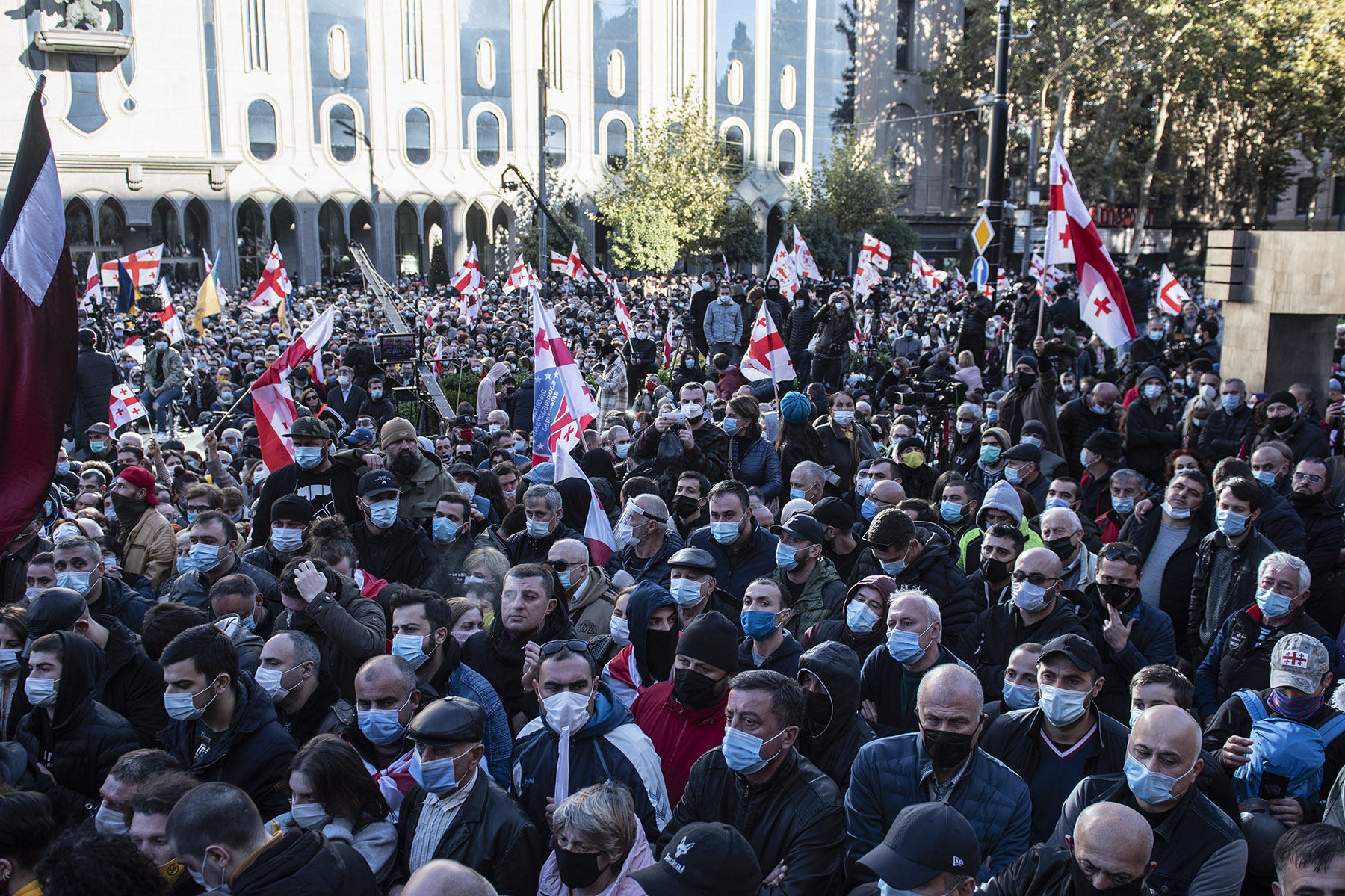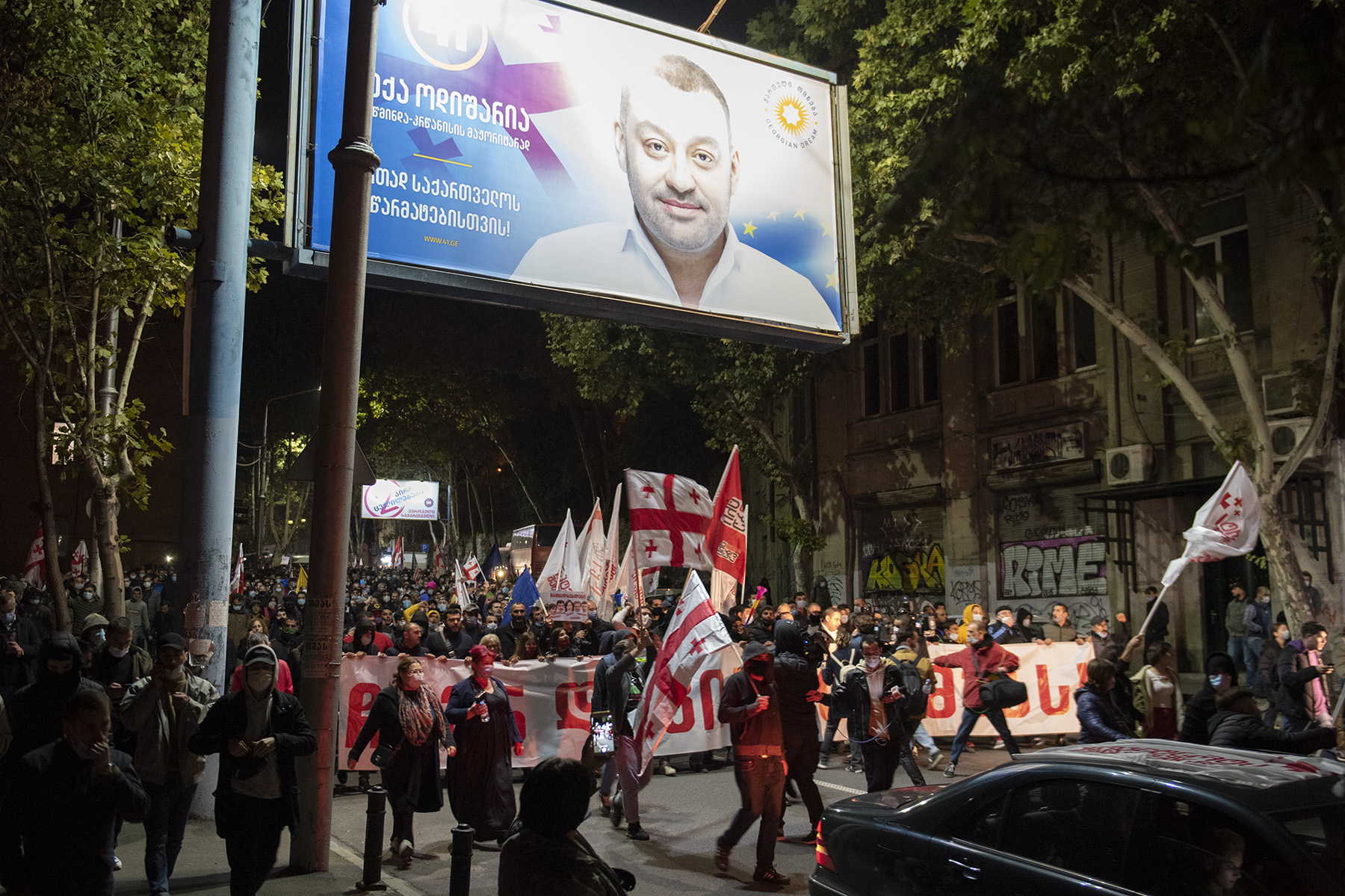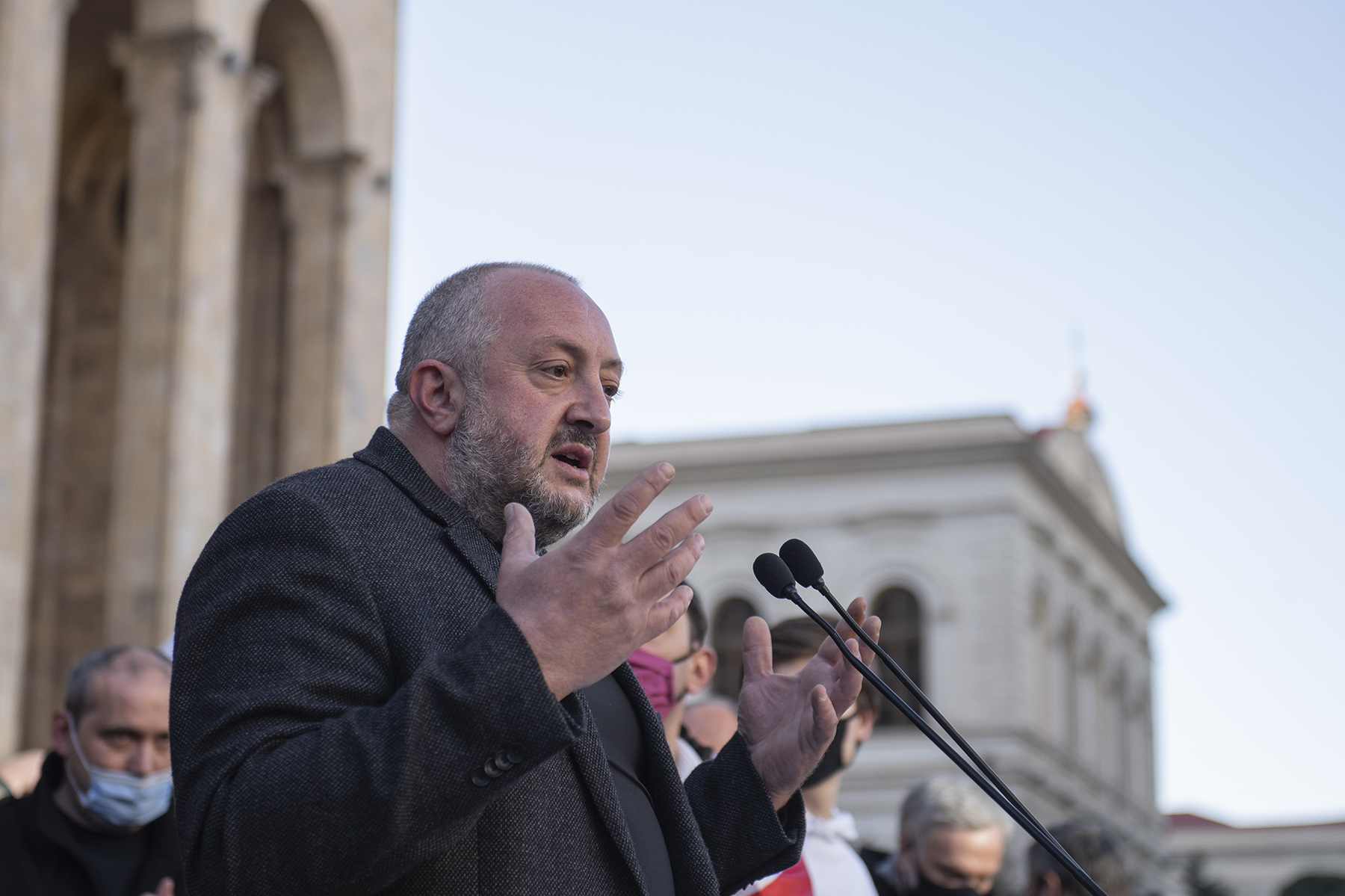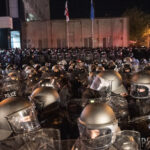Protesters face off with riot police outside Georgian Central Election commission

Thousands of protesters have been confronted by riot police in Tbilisi outside the Central Election Commission. The protesters had marched over 10 kilometres from the Georgian parliament following a demonstration against the results of last week’s elections.
Riot police deployed water cannons several times outside the Central Election Commission (CEC) after the first protesters began to arrive and take down fences surrounding the building.
Water cannons were deployed several more times as the protest continued into the early hours of the morning.
Opposition leaders have vowed to protest again on Monday evening from 20:00. The authorities previously announced that a curfew would be enacted from 22:00 on Monday as part of anti-coronavirus measures.
The demonstration, organised by almost all of the country’s major opposition parties, was against what they have insisted is the falsified result of 31 October’s parliamentary elections. A smaller protest took place in the city of Batumi.
The official election results put the ruling Georgian Dream party on course to win an unprecedented third term in government.
The opposition has called for the election to be repeated and have vowed not to take part in the second-round votes for 17 majoritarian seats planned for 21 November. These include reruns in all eight districts of the capital, Tbilisi.

Opposition figures announced the blockade of the CEC offices at 20:00, upon the expiry of a deadline given to Georgian Dream chair Bidzina Ivanishvili — who holds no government position — to ‘sack’ the Head of the CEC Tamar Zhvania.
Another demand was for him to announce new elections under new electoral authorities.
As protesters marched to their offices, the CEC announced that they had recounted the votes of 24 polling stations and that they planned to recount the results of another 15 as ordered by the courts.
‘It seems that certain involved parties do not want to conduct a recount process and deliberately disrupt [District Election Commissions] from exercising their powers’, the CEC said in a statement.

In his address to the demonstration, Nika Melia, one of the leaders of United National Movement (UNM), called Tamar Zhvania the ‘election-rigger’ and said that opposition members were ‘ready to meet Ivanishvili [to talk] about holding the new election’.
Ivanishvili, a Georgian billionaire, founded Georgian Dream in 2011. The party ousted the UNM from power the following year along with a coalition of several parties. This year’s election was Georgian Dream’s second attempt to renew their rule independently, as most of their allies have become critics throughout the years.

During the protest, problems emerged with mobile internet connections and GPS, preventing the organisers and media covering the event from operating drones. Opposition leaders accused the government of interfering with their protests.
‘Rigged elections’
The day after the 31 October vote, Central Election Commission (CEC) under Tamar Zhvania gave parliamentary representation to seven political parties and two coalition blocs. Georgian Dream led others with 48%.
In response, coalition blocs Strategy Aghmashenebeli and the UNM-dominated Strength in Unity, as well as the Labour, Girchi, Lelo, and Citizens parties held multiple demonstrations outside the offices of central and district election commissions.
They were joined by other small parties that failed to pass the electoral threshold.
The opposition groups claimed protocol summaries of the votes did not reflect the ballots actually cast on last Saturday, a claim largely confirmed by independent local election watchdogs.
‘A credible and inclusive legal process for remedying substantiated electoral violations is necessary to ensure that the will of the voters is respected, that public confidence in the electoral process is assured, and to ensure the public can accept the election results as legitimate’, a joint statement by US Embassy in Tbilisi and the Delegation of EU in Georgia read on 7 November.
[Read more on OC Media: Continuous protests break out over ‘rigged elections’ in Georgia]
Since 1 November, the authorities have arrested several people protesting outside the electoral commissions in major cities throughout Georgia, something that the opposition front called ‘political prisoners’. They included their release among their demands on 8 November.
‘Freedom for all political prisoners’ was also among the permanent demands of the opposition groups during their negotiations with Georgian Dream over the electoral reforms eventually brokered by Western diplomats in Tbilisi in March.
Giorgi Rurua, a supporter of last year’s anti-government protests and co-founder of opposition TV channel Mtavari Arkhi, remains among those prosecuted and convicted on what opposition groups insist were political grounds.










